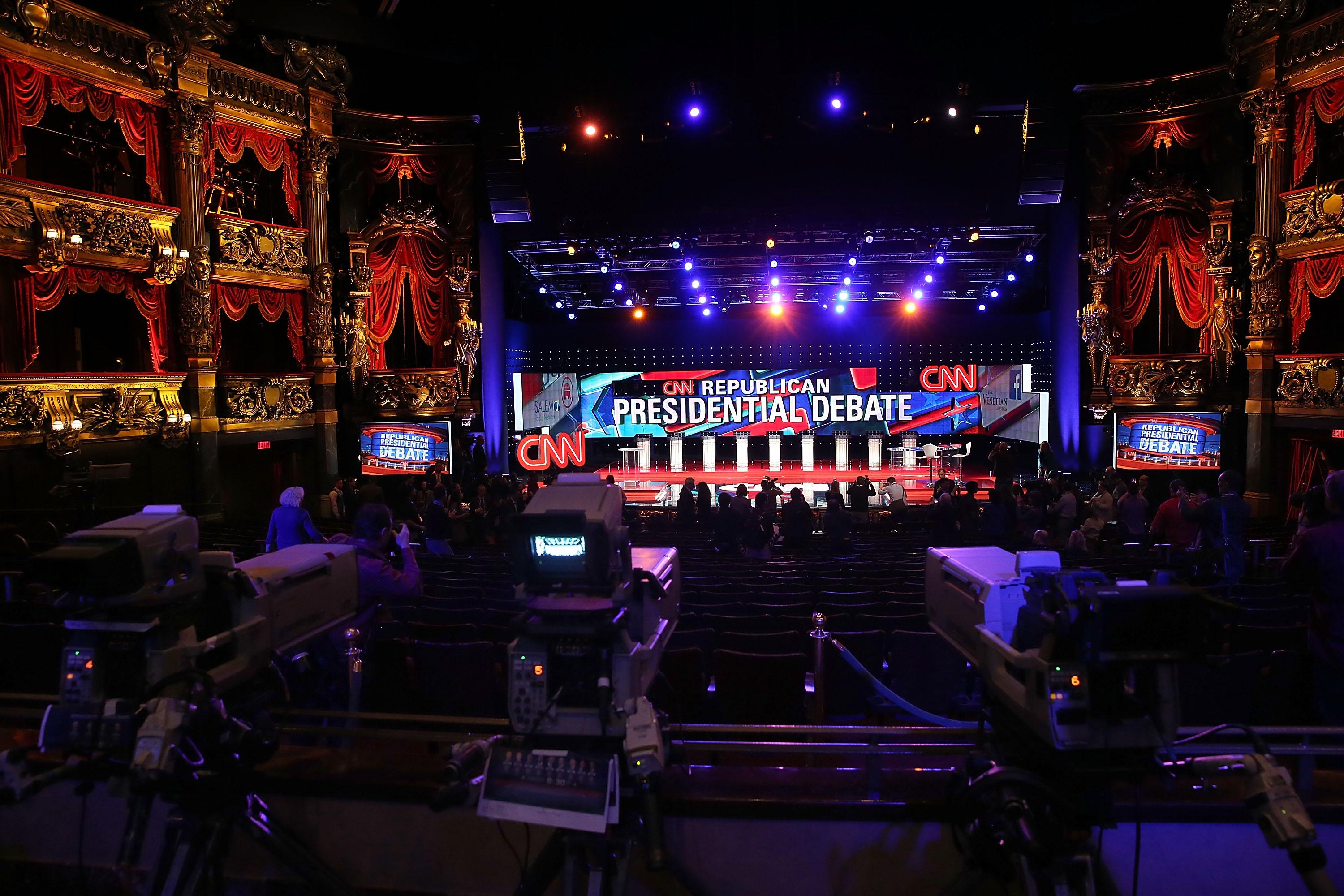The GOP candidates love to accuse the Obama administration of a weak, unfocused, and naïve response to the growing threat of ISIS. This isn’t exactly unwarranted. Nearly a year and a half since the U.S. began military operations against the group, its numbers are virtually unchanged, and the international scope of its operations and propaganda reach has only increased. All the candidates support blocking refugees from Syria as a means of preventing potential terrorists from entering the country, but what do the leaders in the Republican field actually propose to do differently in order to destroy the group at its source, in Syria and Iraq?
Donald Trump
The current GOP front-runner has said that he isn’t revealing too much about his plan because he doesn’t “want to tell ISIS what it is.” But he did say this much: “I would bomb the shit out of them.” After the shit is bombed out of them, he explained in a Nov. 13 speech, he would “get Exxon to come in there” and rebuild the country. “And I’ll take the oil,” he added.
On an ever so slightly more nuanced note, Trump also says the U.S. should welcome Russian intervention in Syria and allow ISIS and Bashar al-Assad’s regime to fight each other. He has opposed arming Syrian rebels on the grounds that the weapons could end up in the hands of ISIS, saying, “We are arming people, but now we have no idea who they are. They’re all splintered up.” In fairness, this is a real and reasonable concern.
Ted Cruz
The Texas senator has focused much of his attention on the president’s choice of words—namely Obama’s failure to utter the all-powerful shibboleth “radical Islam.” But his military proposals are just slight variations on what Obama is already doing. In a foreign policy address at the Heritage Foundation last week, Cruz emphasized giving direct aid to Kurdish Peshmerga forces and involving Arab militaries in the fight—both things the administration is doing to some extent. He hasn’t said if he would commit U.S. ground troops in greater numbers to the fight and criticized those who fetishize boots on the ground as a “talismanic demonstration of military strength.” He also argued against efforts to remove Assad from power, saying that it would create a similar chaotic power vacuum to what we’ve seen in Libya.
Despite his faith in America’s global leadership role and regrets that the U.S. has “receded from the world stage,” Cruz seems curiously uninterested working to resolve the conflict in Syria. He has argued that the U.S. strategy to fight ISIS should not be “laden with impractical contingencies, such as resolving the Syrian civil war, reaching political reconciliation in Iraq or achieving ‘consensus’ in the international community.” It’s not quite clear how jihadi violence can be contained until these issues are resolved, but Cruz hasn’t addressed that.
Marco Rubio
The current GOP establishment favorite comes across as the most knowledgeable about world affairs onstage, but when it comes to ISIS, even he prefers talking about halting Syrian refugees to what he would do differently in Syria and Iraq. Rubio, reasonably, calls for Iraq’s Shiite-dominated government to grant more autonomy to Sunnis in order to address the “ideological conflict at the heart of this struggle.” He also wants more direct aid to the Kurdish Peshmerga. He has not said if this means that he supports the de facto separation of Iraq into separate ethnic states—which would put him at odds with the current administration.
As a senator, Rubio opposed the Obama administration’s proposed authorization for the use of military force against ISIS on the ground that it placed too many limitations on the U.S. response, including a ban on “enduring offensive ground operations.” Rubio favors the involvement of some U.S. special operations troops on the ground, but it’s not quite clear how many or whether this would go beyond the troops the Obama administration has already sent to embed with rebel forces in Eastern Syria.
Ben Carson: Let’s just say it’s a little confusing.
Jeb Bush: As the Washington Post put it, Jeb’s election would almost certainly lead to a “third president named Bush deploying U.S. military forces in the Middle East.” Last summer, before the Paris attacks as well as his own precipitous fall in the polls, Bush seemed to believe that the U.S. could defeat ISIS without “a major commitment of American combat forces.” His plan involved expanded airstrikes, rebuilding Iraqi security forces, providing additional support to Kurdish forces, and establishing a no-fly zone to protect Syrian rebels. But in a Nov. 18 national security speech, Bush had a new line calling for “overwhelming force” to defeat the group and saying the U.S. “will need to increase our presence on the ground.” The candidate who had struggled early on with how to address his brother’s controversial foreign policy has evidently decided to stop worrying about the comparison.
There is one real divide in the field and it’s not about troop commitments or airstrikes against ISIS, it’s about what to do with Bashar al-Assad. The line can be drawn pretty neatly between the establishment and outsider groups. Rubio, Bush, and Chris Christie believe Assad has to go and that the U.S. should take more aggressive steps to hasten his removal. Trump, Cruz, and Rand Paul say that despite his many crimes, we need Assad in power to fight ISIS. Unlike most of the pledges to be tough and resolute you will hear on stage tonight, that’s a real difference in policy that reflects a real difference in worldview.
